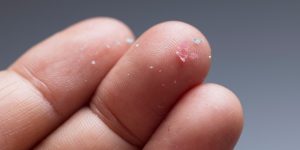Italian scientists found microplastics in the arteries of people who have atherosclerosis and linked it to risks for patients.
Others are reading now
Italian scientists have made a concerning discovery: microplastics are present in the arteries of people with atherosclerosis, linking these tiny pollutants to significant health risks.
Atherosclerosis is a cardiovascular disease that occurs when arteries become clogged with excess cholesterol and fat deposits. People who suffer from atherosclerosis have a higher risk of cardiovascular diseases, such as coronary heart disease, and other ailments such as diabetes, kidney disease, and obesity.
The study, reported by Medical News Today and published in The New England Journal of Medicine, revealed that 60% of the participants had polyethylene in their arterial plaques, while 12% contained polyvinyl chloride. Polyvinyl chloride (or PVC) is a plastic often used in construction.
The study also found that microplastics increased the risk of heart attack, stroke or death by 4.5 times in the 34 months after plaque removal.
Also read
The Study and Its Findings
Conducted by a team from the University of Campania Luigi Vanvitelli under the guidance of Professor Raffaele Marfelli, the study initially involved 304 patients undergoing carotid endarterectomy—a surgical procedure to remove arterial plaque. After examining the removed plaques for microplastics and following up with 257 participants for 34 months, the researchers found that individuals with plastic particles in their plaques had a 4.5 times higher risk of cardiovascular events or death compared to those without.
The team of scientists admitted that they were surprised by these data, despite the fact that past studies have already shown the harmful effects of plastic pollution in the body.
“The presence of plastic in human atherosclerotic plaques is striking. Unfortunately, the contamination of body tissues with plastic is not a unique phenomenon. Its probable impact on the health of the cardiovascular system is a cause for concern,” the authors noted.
This alarming finding indicates a need for further investigation into how microplastics may exacerbate or contribute to cardiovascular health issues.
“People need to be aware of the risks we are taking with our lifestyles. We could use less plastic and choose other materials. I hope that the warning signal of our study will raise the consciousness of citizens, especially governments, so that they finally realize the importance of the health of our planet. Doing without plastic is healthier for both the heart and the planet,” emphasizes Raffaele Marfelli.
Microplastics: A Ubiquitous Threat
Microplastics, defined as plastic particles up to 5mm in length, come from the breakdown of larger plastic items or are manufactured for specific uses like microbeads in cosmetics. They enter the human body via consumption of contaminated food, water, and air.
With Americans ingesting an estimated 39,000 to 52,000 microplastic particles annually, the implications for health, including hormonal balance and gut microbiota, are increasingly concerning.
In addition to the environment, scientists have already found plastic in human placentas.








